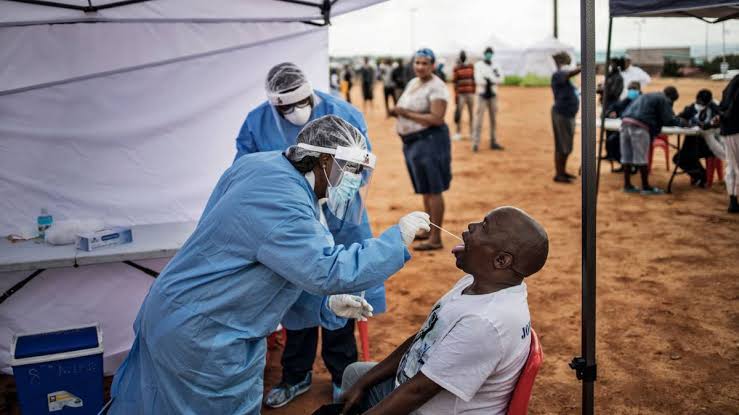South African President Cyril Ramaphosa has announced a new round of coronavirus restrictions on Sunday in response to the country’s rising rate of infections.
SEE ALSO: Any Motorist That Breaks Lagos Traffic Law Will Be Sanctioned- FRSC Commander
“From Monday onwards, a night-time curfew will be enforced between 9 pm and 4 am, while face masks will be compulsory in public places and a ban on the sale of alcohol will be reintroduced.
“The national “state of disaster” is also to be extended until Aug. 12.
“We are now recording well over 12,000 cases every day,” Ramaphosa said in a televised Sunday evening address to the nation.
He noted that too many South Africans were now relaxing their behaviour after restrictions were eased.
South Africa has confirmed 276,242 coronavirus cases to date, the president said.
The government imposed a nationwide lockdown at the end of March to stem the spread of the virus and give the country time to build up its health infrastructure.
However, the measures were then gradually eased again in May and June, although the sale of tobacco products has remained banned ever since.
The restrictions have had a devastating effect on the country’s economy, with millions struggling to survive, and levels of poverty and food insecurity dramatically worsening in just a few weeks.
Even before the pandemic, Africa’s second-largest economy was already in a difficult situation.
With high unemployment rates and brutal social inequality, the country has been struggling for years with structural economic problems and an unreliable electricity supply.

